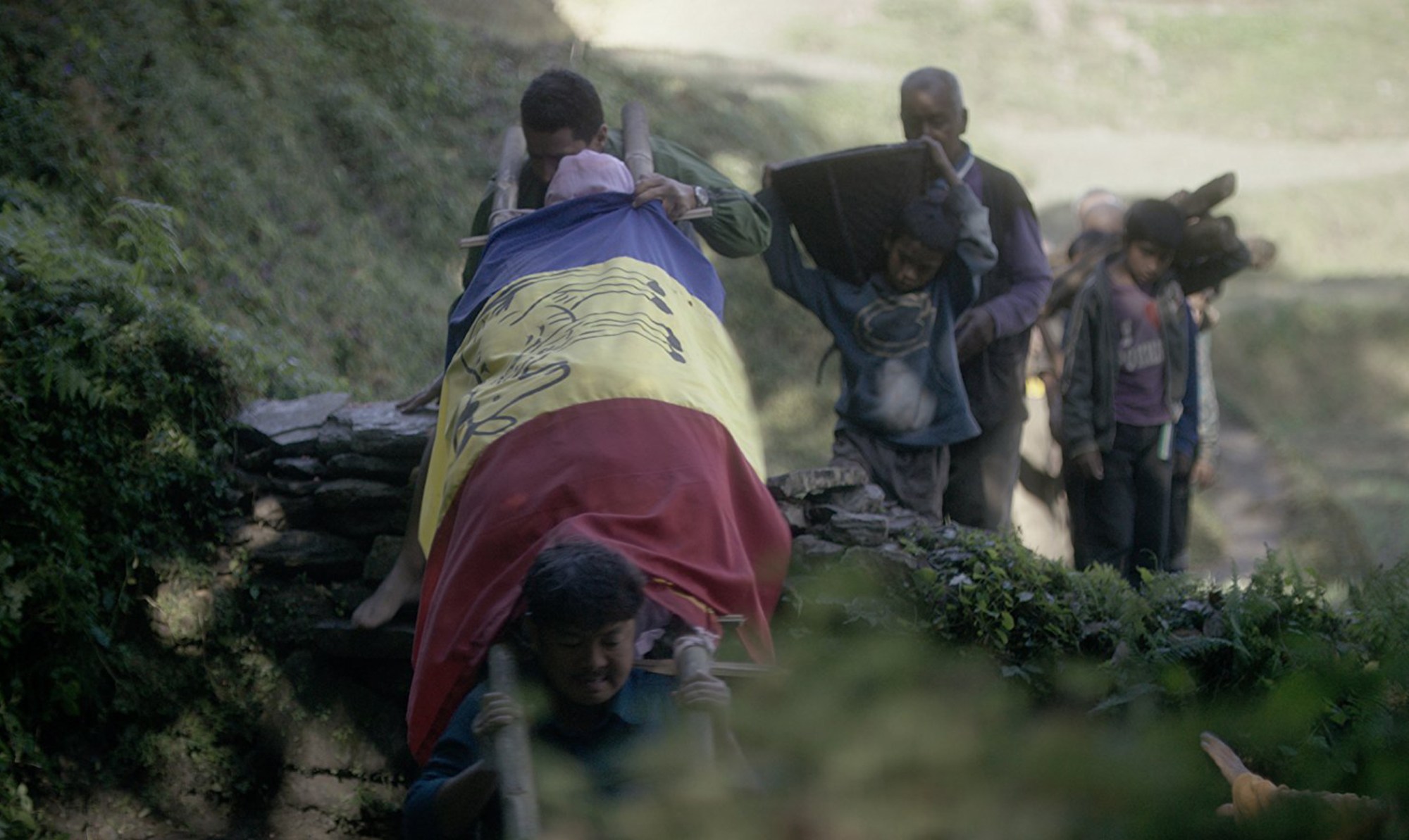
- Golden Globe Awards
White Sun (Seto Surya) (Nepal)
Set in the microcosm of a tiny mountain village, White Sun, directed by Deepak Rauniyar, illustrates various issues still dividing Nepal after the end of the civil war, the bloody armed conflict between government forces and Maoist rebels (1996-2006) that ended the monarchy and established a People’s Republic.When the elderly chairman of a small village suddenly dies, his daughter-in-law needs help to move the body out of the house, since women are not allowed to touch the dead. Ancient beliefs also prohibit a dead man to exit from the front door, so he has to be hoisted out of a small second story window; but then the village elders are too weak to carry the body down a steep incline to the river to be cremated. The chairman’s son Chandra (Dayhang Rai) returns from Kathmandu after many years fighting with the communist insurgents, and he offers to help his brother Suraj carry their father’s body. But they get into a political argument, and Suraj, who supported the monarchy, abandons the scene.Chandra walks to a nearby village to ask the police for help, but they refuse; they suggest he ask his old comrades, who rejected the peace accord and are still fighting in the mountains; but when the guerrillas come down to the village to help, Suraj has asked an army unit for help as well and old enmities between the opposing camps are revived. Intertwined with the story of these fighting men, is the predicament of the women. Chandra’s wife Durga (Asha Magrati), who had a daughter, Pooja (Sumi Malla) with another man while her husband was away, needs a father’s signature to get the little girl into school.This is the director’s second feature after Highway in 2012. With his wife, actress Asha Magrati, Deepak Rauniyar, born in 1978, a journalist and film critic, founded a production company in 2010 to develop socially conscious films in Nepal. With this film, whose title refers to the white sun on the Nepal’s flag, he highlights the human costs of the civil war and his hope for reconciliation. He said: “The government patrols against the Maoists were brutal. They burned houses and killed innocent people to create an atmosphere of terror. In response Maoist guerrillas burnt down our local school. By the time the ceasefire happened our village was almost empty. Most young people had run away or had been killed.” The story is set after the devastating earthquakes of 2015, when “the disaster forced the opposing parties to agree on a new constitution in September 2015. The dead body is a metaphor for the king’s regime, overthrown after 10 years of civil war.”

